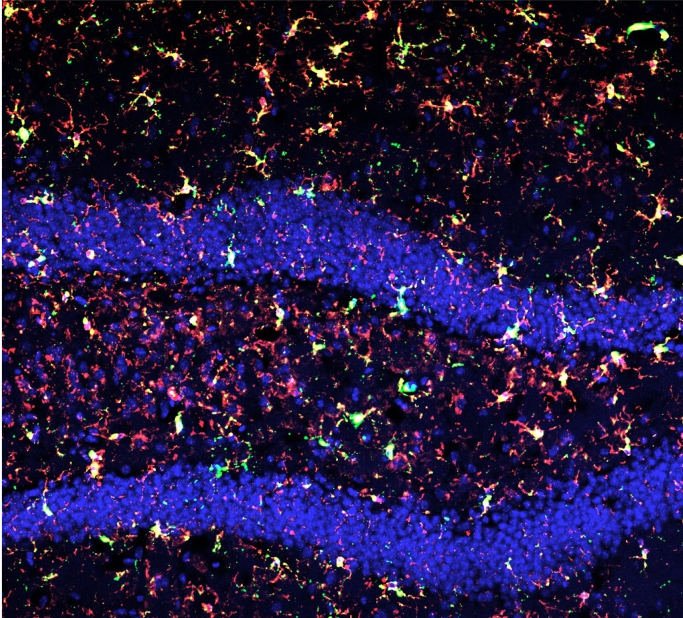Mild Concussive Injury
Using a closed-head injury (CHI) model to understand the role of astrocyte reactivity and astroscyte-spine interaction on the long-term cognitive deficits observed following trauma. The goal is to provide critical and novel information regarding the contribution of astrocytes in the pathogenicity of TBI-induced altered cognitive function and potentially offer an alternative treatment strategy.
Repeated Concussive Injury
Our group has developed a model for repeated mild concussive injuries (rTBI) similar to sports related injury. These projects investigate how cortical circuits in the prefrontal cortex, including the medial prefrontal cortex and the orbitofrontal cortex, undergo maladaptive reorganization after traumatic brain injury and are related to deficits in higher order cognition and mental flexibility. We hope to understand mechanisms underlying selective vulnerability, including the role of neuroinflammation, and if targeting the function of specific neuronal populations can restore cognition.
Aging and TBI
My goal is to understand healthy age-related decline as well as the compounding effect head trauma can have on cognitive output in the elderly population. We have found links between peripheral immune populations and cognitive abilities in aged rodents. Next, we’ll further explore these links in hopes of potential therapeutic developments.
ISRIB and TBI
This exciting project is done in collaboration with Dr. Peter Walter. We’ve demonstrated that interference of the integrated stress response (with ISRIB) rescues trauma-induced cognitive loss. Now, we hope to understand how a temporary break on this integral cellular pathway can completely reverse chronic deficits associated with a number of different trauma models. http://walterlab.ucsf.edu/
